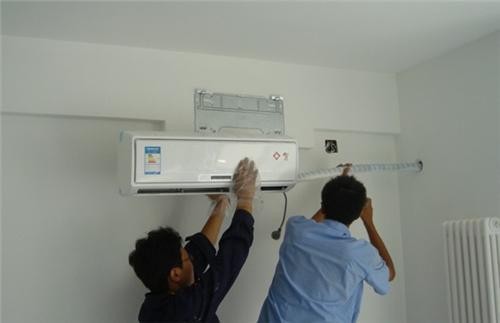如何用英語表達好久不見(How to Say Long Time No See in English)
In this article, we will explore various ways to say "long time no see" in English. The phrase "long time no see" is commonly used to express that it has been a while since the last meeting or encounter with someone. We will delve into different phrases and expressions that can be used in this context, highlighting their usage and connotations. By the end of this article, you will be equipped with a range of alternatives to effectively convey the same sentiment.

In English, there are several standard expressions that can be used to convey the meaning of "long time no see." These phrases are commonly understood and widely used in both formal and informal settings.
One commonly used expression is "It's been a while." This phrase is simple and straightforward, conveying the idea that a significant amount of time has passed since the last encounter. For example, you could say, "It's been a while since we last saw each other."
Another standard expression is "Long time, no see!" This phrase is more casual and often used in informal situations or with close friends. It has a friendly and light-hearted tone, expressing joy or surprise at finally meeting again after a long absence. For instance, you might say, "Hey! Long time, no see! How have you been?"

A similar expression is "Haven't seen you in ages!" This phrase emphasizes the extended duration of time since the last meeting. It is often used to express excitement or nostalgia about reconnecting with someone after a long absence. For example, you could say, "Wow, haven't seen you in ages! It's great to see you again."

While the previously mentioned expressions can be used in both formal and informal contexts, there are specific phrases that are more suitable for formal situations.
An appropriate phrase for formal settings is "It's been a long time since we last met." This expression retains a sense of formality while still conveying the same idea. For instance, you could say, "It's been a long time since we last met, and I'm pleased to see you again."
Another formal option is "I trust that it has been well since our last meeting." This phrase not only expresses the length of time but also conveys a formal tone and shows an interest in the other person's well-being. For example, you might say, "I trust that it has been well since our last meeting. How have you been?"

In a business context, you can use the phrase "It's good to see you after such a long time." This expression combines formality with a professional tone, acknowledging the extended period since the previous encounter. For instance, you could say, "It's good to see you after such a long time. I hope everything has been going well for you."

In more casual and informal situations, there are alternative phrases that can be used to convey the same sentiment in a relaxed and friendly manner.
A popular informal expression is "Long time no talk!" This phrase is often used when there has been a significant gap in communication rather than physical meetings. It acknowledges the absence of conversation and can serve as a light-hearted icebreaker. For example, you might say, "Hey! Long time no talk! We have a lot of catching up to do."

Another casual option is "I can't believe we haven't crossed paths in ages!" This phrase expresses astonishment at the duration of time since the last encounter. It often conveys excitement about reconnecting and suggests that the lack of meeting was unexpected. For instance, you could say, "I can't believe we haven't crossed paths in ages! How have you been?"

For a more slang-oriented expression, you can use "Where have you been hiding all this time?" This phrase is informal and evokes a sense of playfulness or teasing. It suggests that the person has been absent for a long time and playfully questions their whereabouts. For example, you might say, "Hey! Where have you been hiding all this time? I've missed seeing you around!"

It is worth noting that different cultures and regions may have their own unique ways of expressing "long time no see." These expressions can offer insight into the linguistic and cultural persity of English.
In some areas, an alternative phrase is "Where have you been keeping yourself?" This expression is commonly used in British English and adds a touch of humor and familiarity to the conversation. For instance, you could say, "Where have you been keeping yourself? I've missed our chats."
In Australian English, a typical expression is "Been yonks since we caught up!" This phrase is extremely informal and slang-driven. "Yonks" is an Australian term meaning a long time, and it injects a lighthearted and playful tone into the conversation. For example, you might say, "Hey! Been yonks since we caught up! Let's grab a drink and chat."

Overall, by exploring various standard expressions, formal alternatives, casual and informal options, as well as cultural and regional variations, we have provided a comprehensive guide on how to say "long time no see" in English. You now have a range of alternatives to choose from, allowing you to adapt your language to different settings and relationships.

Saying "long time no see" in English can be accomplished through various phrases and expressions. By utilizing standard expressions like "It's been a while," "Long time, no see!" or "Haven't seen you in ages!" you can effectively convey the sentiment in both formal and informal settings. In more formal contexts, phrases like "It's been a long time since we last met" or "I trust that it has been well since our last meeting" are appropriate. For casual or informal situations, phrases like "Long time no talk!" or "Where have you been hiding all this time?" can be utilized. Additionally, different cultures and regions may have their own variations, such as "Where have you been keeping yourself?" in British English or "Been yonks since we caught up!" in Australian English. With this comprehensive guide, you are now equipped with a variety of ways to express "long time no see" in English.
- 冰箱蒸發器怎么拆(簡單易懂的拆卸步驟)。05-15
- 1海信42k11p怎么折開(海信42K11P:全方位展示超清畫質)
- 2創維液晶電視的遙控器怎么調試(創維電視遙控器調試指南)
- 3林內空氣能售后服務官網熱線(林內空氣能售后服務官網熱線)
- 4朝友精工保險柜24小時售后電話(朝友精工保險柜24小時售后電話 - 完善24小時保
- 5納斯普金保險柜24小時售后電話(如何快速打開保險柜鎖的方法)
- 6冰箱溫控器接錯線(如何正確接線避免損壞)
- 7空調f8是什么故障(空調F8故障解析)
- 8福田松下空調維修電話(如何快速聯系客服解決問題)
- 9施樂燈架位置故障如何解決(施樂燈架位置故障的解決策略:一步步排查與修復
- 10TCL空調廠家售后電話24小時人工電話(TCL空調24小時客服熱線:全天候為您的空調
-
美的中央空調全國統一服務熱線(美的空調加壓力是什么意思美的空調加壓力含
2024-09-11
-
開利空調24小時人工服務(中央開利空調油壓差低什么原因中央開利空調油壓差低
2024-09-11
-
三菱重工中央空調售后服務電話24小時(三菱空調3通閥壞了怎么辦如何快速更換
2024-09-11
-
三菱電子中央空調廠家售后維修電話是多少(三菱空調不制熱了吹涼風可能是哪
2024-09-11
-
南寧武鳴沃爾堡壁掛爐售后電話(如何快速找到并聯系售后服務)
2024-09-11


